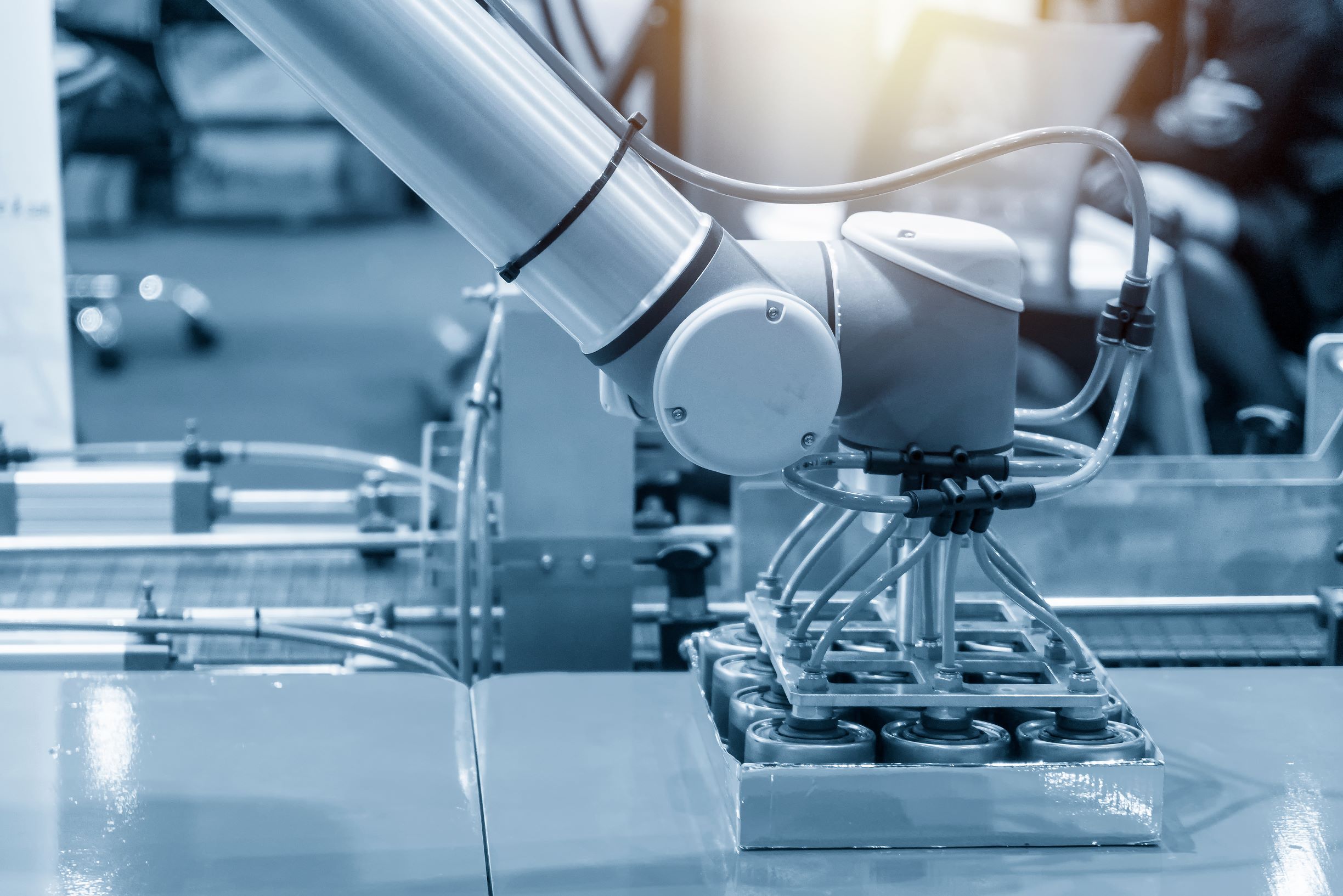PWC’s UK Manufacturing Operations Pulse Survey 2021 found almost half of UK manufacturers are prioritising robotic process automation over the next two years. Automated equipment can perform to exact requirements, making it inherently advantageous in testing and control. Here Dave Walsha, sales manager at drive system supplier EMS, looks at how reliable, high performance micromotors are achieving process precision.
Developments in robotics have allowed automated equipment to become increasingly sophisticated, performing tasks with superior speed and accuracy. For instance, a hospital in Oxford found a surgical robot could perform an eye surgery with ten times more precision than a human surgeon alone. However, it’s not just the medical sector that can capitalise on the high accuracy of automated machines ― manufacturers can reap the benefits too.
Keeping control
Manufacturers who adopt automated production lines gain a high level of control over the assembly process, which minimises waste from defected goods and ensures customers consistently receive a high quality product. These benefits have contributed to the record high of 2.7 million industrial robots operating in factories around the world in 2020.
Automated equipment can be digitally programmed to perform tasks to exact measurements, demonstrating repeatability that is unmatched by human workers. For instance, when properly calibrated, it’s possible for a six-axis industrial robot to achieve a position repeatability of 0.1 millimetres (mm) or better.
There are a number of production stages that can benefit from the precision of automated equipment. For example, a torque controlled power screwdriver ensures each screw in the workpiece is turned to the exact same level of tightness, avoiding loose or over-tightened screws.
In addition, an automated dosing pump can supply the exact amount of materials, such as adhesives, lubricants or sealants, required to the target product area. As well as preventing waste and avoiding contamination of other product parts, being able to supply precise amounts helps meet the miniaturisation trend, aiding the assembly of products with ever decreasing sizes.
Meticulous testing
However, the benefits of precise automated equipment aren’t restricted to product manufacturing, they’re also advantageous in testing. For example, an automated testing rig with a motorised locking mechanism can hold a product in place while it’s subjected to different tests. One of these tests could be scanning the product for defects, such as missing screws, damage or incorrect dimensions, by moving the rig along a motorised conveyor belt to a vision system.
Another assessment where automation is beneficial is tensile testing, where the product is pulled and then monitored when it deforms or snaps to measure its resistance to breaking under tension. This is often used on metal alloys to discover how they perform under different loads. Tensile testing devices may be used as part of a quality control system or during material research when developing new alloys.
Products in powder or liquid form may undergo viscosity testing, where a motorised stirrer moves through the product and sensors detect its resistance. This could be used in product development or for testing batches in industries such as chemicals, pharmaceuticals, cosmetics and food and beverage.
Another experiment that benefits from automation is accelerated life testing, which subjects a product to conditions such as heat, vibration and pressure in excess in order to uncover potential faults in a short amount of time. This could be, for example, turning a light switch on and off multiple times a second, or repeatedly putting pressure on a chair.
Not only would these testing tasks be highly monotonous for human workers, but they would also take much longer to perform than an automated system. High performance motors can power an automated system to perform these mechanical tests repeatedly at a fast rate with no human intervention.
Superb motor systems
It’s important that automated industrial equipment are matched with advanced motor systems that deliver reliable power. All FAULHABER motors are made in a highly controlled manufacturing process, which ensures they are of consistent quality and perform with fine accuracy.
The motors are renowned for their high power density, providing enough torque for demanding automated processes such as performing mechanical tests. Their compact construction adds minimal weight and bulk to systems, aiding automated equipment that require fine control and swift movements, such as dosing pumps.
The FAULHABER brushless motors are ideal for automated systems, as they provide a long life with a wide speed range. They also have a range of compatible motion controllers that create an advanced, programmable drive system with easy and accurate control that is simple to integrate into an automated system.
Many manufacturers are focusing on automation in their future development plans. Motorised equipment bring high levels of accuracy and precision to production lines and testing facilities, ensuring only consistently high quality products reach customers.




